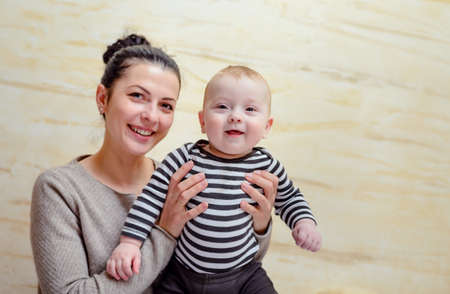Warm Welcome and Classroom Environment
Step into a typical UK Reception classroom and the first thing you’ll notice is the warm, inviting atmosphere designed to help young children feel at home from the outset. The environment is carefully curated with bright displays, child-sized furniture, and an array of interactive learning zones that encourage exploration. Teachers and support staff greet each child by name, helping them settle into familiar routines that quickly become a comforting part of their day. These routines—such as morning registration, self-chosen activities, and circle time—provide a sense of security and predictability for both children and parents. The classroom’s layout often includes cosy reading corners, creative play areas, and spaces for hands-on learning, all tailored to spark curiosity while making sure every child feels included. For families new to the UK school system, this nurturing setting reassures you that your child will be supported as they take their first steps in formal education.
Daily Structure and Typical Activities
One of the most reassuring aspects for parents new to the UK education system is understanding how a Reception classroom balances structured learning with opportunities for free play. The daily routine in a typical UK Reception class is designed to be both nurturing and stimulating, offering a blend of teacher-led activities and child-initiated exploration. Below is an overview of what you can expect your child’s day to look like:
| Time | Activity | Description |
|---|---|---|
| Morning | Circle Time | A warm welcome, sharing news, and setting expectations for the day. Encourages listening skills and social interaction. |
| Mid-Morning | Phonics & Literacy Sessions | Short, engaging lessons focusing on sounds, letters, early reading and writing through interactive games and stories. |
| Late Morning | Free Play & Continuous Provision | Children choose from various themed areas (construction, role play, creative arts) allowing them to follow their interests while developing key skills. |
| Lunchtime | Lunch & Social Skills | A chance to develop independence and manners while eating with peers. |
| Afternoon | Outdoor Learning | Exploring the playground or garden; activities may include sand and water play, gardening, or nature hunts—essential for physical development. |
| End of Day | Story Time & Reflection | The day ends with a group story or song, providing a calm moment to reflect on what has been learned. |
This flexible timetable allows teachers to respond to children’s interests and needs on any given day. Circle times, which occur at the start and end of sessions, are particularly valued in British classrooms as they help foster a strong sense of community. Interactive stories are woven throughout the timetable—not just during literacy sessions—bringing learning themes to life. Meanwhile, outdoor learning is more than just playtime; it’s viewed as an integral part of the curriculum where children build confidence and resilience. For parents seeking a nurturing yet educational environment, UK Reception classes offer an appealing mix that supports both academic beginnings and emotional wellbeing.

3. Key Learning Areas and Curriculum Focus
One of the defining features of a UK Reception classroom is its foundation in the Early Years Foundation Stage (EYFS) curriculum. As parents, understanding this framework can give you valuable insight into what your child will be experiencing day-to-day. The EYFS is designed to ensure that children are given the best possible start in life, with a strong emphasis on both academic and personal development.
Understanding the EYFS Curriculum
The EYFS curriculum is structured around seven key areas of learning and development, but particular focus in Reception is placed on the “prime areas.” These include:
Communication and Language
Children are encouraged to express themselves freely, listen attentively, and engage in conversations with adults and peers. Story time, singing, and group discussions help develop vocabulary and confidence in using language — an essential part of everyday life in Britain.
Physical Development
From outdoor play sessions to fine motor skills activities like cutting and drawing, physical development is woven throughout the school day. This not only supports coordination and movement but also helps children become more independent in tasks such as dressing or using cutlery — all important milestones for young learners in the UK.
Personal, Social, and Emotional Development
Building friendships, understanding feelings, sharing, and cooperating with others are vital elements of Reception life. Teachers place a strong emphasis on nurturing positive relationships and helping children develop resilience — setting them up for success both in school and beyond.
Academic Foundations: Literacy & Numeracy
Literacy
Your child will begin their journey towards reading and writing through phonics-based learning, storybooks from British authors, mark-making, and even early attempts at writing their own name. These experiences foster a love for stories while developing crucial literacy skills.
Numeracy
Maths activities are often hands-on and practical: counting out fruit at snack time, recognising numbers around the classroom, or exploring shapes through building blocks. The aim is to make numeracy fun and accessible while laying solid foundations for future mathematical understanding.
A Holistic Approach
The UK Reception year isn’t just about academic achievement — it’s about helping each child thrive socially, emotionally, physically, and intellectually within a supportive community. This holistic approach is a hallmark of the British education system and something many parents value highly when choosing their child’s first school experience.
Role of Teachers and Support Staff
One of the highlights of a UK Reception classroom is the dynamic team of teachers and support staff who work together to create a nurturing learning environment. Parents can expect to meet not just the class teacher, but also a range of teaching assistants (TAs) and sometimes specialist staff, all dedicated to supporting every child’s early educational journey.
Meet the Team: Who’s Who in the Classroom?
| Role | Main Responsibilities |
|---|---|
| Class Teacher | Leads the class, plans activities, monitors progress, communicates with parents |
| Teaching Assistants (TAs) | Support individual and group learning, provide extra help, assist with classroom routines |
| SEND Support Staff | Specialist support for children with additional needs, ensures inclusion for all pupils |
Fostering Curiosity and Independence Through Play-Based Learning
The teaching team in Reception adopts a play-based approach that is central to the Early Years Foundation Stage (EYFS) curriculum. This method encourages children to explore their interests at their own pace while developing essential skills. Teachers set up engaging activities—ranging from role-play corners to outdoor adventures—that spark curiosity and invite children to make independent choices about how they learn.
Gentle Guidance and Positive Reinforcement
Rather than traditional ‘chalk and talk’ lessons, teachers and TAs gently guide children through their daily experiences. They use open-ended questions (“What do you think will happen if…?”), praise positive behaviour, and model kindness in every interaction. This supportive approach helps children develop confidence, resilience, and social skills alongside academic foundations.
The Heart of the Classroom Community
Most importantly, teachers and support staff form strong bonds with both children and families. From greeting each child at the door to offering regular updates on progress, they work hard to ensure every pupil feels valued. As you virtually tour a Reception classroom in the UK, you’ll see a warm atmosphere where adults are approachable, attentive, and genuinely invested in your child’s happiness and development.
5. Parental Involvement and Home-School Communication
One of the cornerstones of a successful Reception year in the UK is the strong partnership between schools and families. British schools actively encourage parents to be part of their child’s early education, recognising that learning doesn’t stop at the classroom door. Many Reception classes invite parents to engage with home learning activities—these might include reading together, simple craft projects, or even exploring numbers and letters during everyday routines. You’ll find that teachers regularly send home newsletters or updates via email or dedicated school apps, keeping you informed about what your child is learning, upcoming events, and ways to support their progress at home.
Additionally, most schools offer workshops or information sessions for families. These are brilliant opportunities to better understand the curriculum and pick up tips on how to foster learning at home, whether it’s practising phonics or encouraging independence. Open-door policies are common, meaning you can arrange to discuss any concerns or milestones with your child’s teacher throughout the year. This collaborative approach ensures that children receive consistent support, both at school and at home, making their transition into formal education as smooth and enjoyable as possible.
6. Settling-In Process and What to Expect in the First Weeks
Starting Reception is a big step for both children and parents, and schools across the UK place great emphasis on making this transition as smooth as possible. Understanding what to expect during the settling-in period can help ease nerves and set realistic expectations for your child’s first weeks in their new classroom environment.
The Transition Period
Most UK primary schools offer a carefully structured transition process designed to help children adapt gradually to Reception life. This often begins with introductory visits or “stay-and-play” sessions before the official start date. These opportunities allow children to familiarise themselves with their new surroundings, meet teaching staff, and interact with future classmates in a relaxed setting.
Gradual Start Options
It’s common practice for schools to stagger start times or introduce half-days during the first week or two of term. Some schools may split the class into smaller groups, allowing each group to attend for shorter sessions initially. This gentle approach helps prevent children from feeling overwhelmed, providing time to adjust at their own pace. Parents are usually kept informed with clear timetables outlining when their child will attend full-time.
Support Strategies for Children
Reception teachers are highly experienced in supporting young children through these early days. They often use visual timetables, familiar songs, and comforting routines to create a sense of security. Classroom activities focus on building confidence, social skills, and independence—key foundations that support a positive start to school life.
Support for Parents
Schools recognise that parents also need reassurance during this period of change. Regular communication is encouraged, whether through daily handovers, newsletters, or informal chats with staff at drop-off and pick-up. Many schools also offer parent workshops or information evenings, where you can ask questions and learn more about what your child is experiencing day-to-day.
What if My Child Struggles?
It’s perfectly normal for some children to take longer than others to settle in. Teachers are used to helping children manage separation anxiety or shyness, working closely with families to provide extra support where needed. If you have any concerns, don’t hesitate to speak with your child’s teacher—they’ll be able to offer practical advice and reassurance tailored to your child’s needs.
In summary, while the first few weeks of Reception can feel daunting, UK schools are well equipped with thoughtful strategies and plenty of support for both children and parents. With patience and open communication, most families find that their child soon settles in happily and begins to thrive in their new learning environment.

